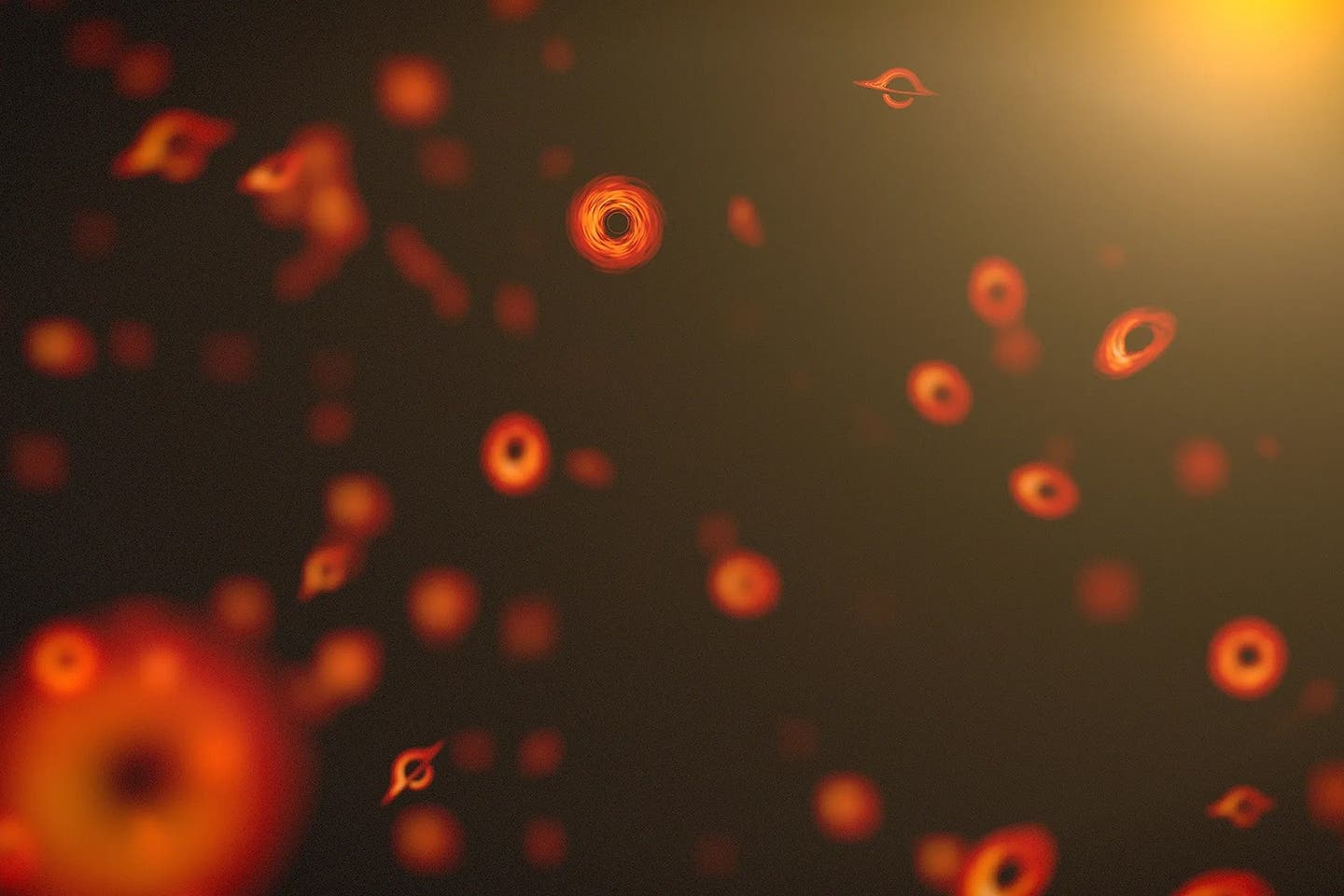Breakthrough Treatment for Cystic Fibrosis Enters Clinical Trial
In the pursuit of curing cystic fibrosis (CF), scientists are now launching clinical trials for an innovative, revolutionary treatment

[July 8, 2023: Staff Writer, The Brighter Side of News]
A new type of nanoparticle that can be administered to the lungs to deliver messenger RNA encoding useful proteins. (CREDIT: Creative Commons)
In the relentless pursuit of curing cystic fibrosis (CF), a devastating genetic disorder that affects tens of thousands of people worldwide, scientists from the Carle Illinois College of Medicine at the University of Illinois Urbana-Champaign (CI MED UIUC) and the Carver College of Medicine at the University of Iowa are now launching clinical trials for an innovative, potentially revolutionary treatment.
The treatment, developed in partnership with the biotech startup cystetic Medicines, hinges on an inhalable molecular prosthetic, designed to enhance lung function in those CF patients who have been out of reach of existing therapies.
Cystic fibrosis is a progressive disease marked by persistent lung infections that cause severe, often irreparable damage over time. The disease is a product of mutations in the cystic fibrosis transmembrane conductance regulator (CFTR) gene. This genetic flaw results in malfunctioning protein channels that are key in regulating the balance of anions and fluid in the lung lining and other organs.
Lung complications in CF patients stem from the thick, viscous mucus that clogs the lung lining, causing difficulty in breathing and frequent infections. Approximately 90 percent of CF patients have CFTR protein channels that are compromised, leading to such adverse effects. These individuals can benefit from a class of drugs known as CFTR modulators, which can restore the function of protein channels and improve breathing. However, patients who produce minimal or no CFTR protein have had limited treatment options, until now.
Related Stories:
The start of the clinical trial, which is engaging the first human volunteers in New Zealand, is a monumental stride forward in a collective effort from both public and private sectors to establish a safe and effective treatment for all CF patients. The novel treatment employs an inhaled drug referred to as CM001, also known as amphotericin B cystetic for inhalation (ABCI). This molecular prosthetic is designed to fill the void left by missing or dysfunctional protein channels and restore a more normalized lung function in CF patients.
Professor Martin Burke, a key figure leading the research team at CI MED UIUC in conjunction with scientists from the University of Iowa, expresses hope in this treatment's potential to effectively combat CF. “We're hopeful that for those who have held their breath for far too long, this could be a first opportunity to regain ion-channel-like function in the airway and thereby address CF at its roots,” he said.
CM001's innovative formulation is an inhaled dry powder, intended to directly target the lungs for more consistent and effective dosing. Burke explained, “With this method, people with CF could directly deliver this molecular prosthetic to their lungs where they need it most, hopefully increasing its efficacy and safety.” This ongoing clinical trial is designed to evaluate the drug's safety, tolerability, and overall biodistribution.
Cystic fibrosis is caused by mutations in the cystic fibrosis transmembrane conductance regulator (CFTR) gene responsible for producing the protein that helps regulate the balance of anions and fluid in the lining of the lungs and other organs. (CREDIT: Carle Illinois College of Medicine)
The ability of CM001 to act as a molecular-scale prosthetic, substituting the missing protein and restoring ion channel function, places a beacon of hope in the eyes of Burke and his team. “The first impact we're hoping to achieve is by partnering with that final 10 percent of the CF community that cannot benefit from modulators to determine if we can provide benefit in a way that would address this fundamental defect,” said Burke.
While CM001's most prominent contribution may lie in assisting patients untreatable with CFTR regulators, it also holds promise for other CF patients. Jeffry Weers, the Chief Technology Officer of cystetic Medicines and a key figure in inhalable medicine development, remarked, “The concept of molecular prosthetics has the potential to alter the treatment landscape for cystic fibrosis in a profound way; in theory, it should work for all people dealing with the disease, regardless of the type of mutation they present.”
ABCI ion powder. (CREDIT: Carle Illinois College of Medicine)
This endeavor has been powered by a collaborative, multi-disciplinary approach spearheaded by Professor Burke, who is both a chemistry professor at UIUC and a practicing medical doctor. “We were able to get the all-star team together, and the whole mission of the company was to translate this basic science finding that happened here at Illinois and the University of Iowa into societal impact.”
This multi-disciplinary team includes Dr. Michael Welsh, a co-founder of cystetic Medicines and a top cystic fibrosis expert from the University of Iowa. His lab played a pivotal role in the collaboration with Burke's lab at UIUC throughout the research journey, including the formative research studies.
“The collaboration between UIUC and the University of Iowa has been key in developing the molecular prosthetic approach to treat cystic fibrosis,” said Ian Thornell, a research assistant professor in the Division of Pulmonary, Critical Care and Occupational Medicine in the Department of Internal Medicine at the University of Iowa.
People with CF have played a critical role in the early testing of the new treatment. Senior research scientist at UIUC, Agnieszka Lewandowska, expressed gratitude for the CF community's willingness to provide cells for testing. She commented, “In collaboration with laboratories of Mike Welsh and Ian Thornell at the University of Iowa, we were able to demonstrate that ABCI, developed in partnership with cystetic Medicines and tested at UIUC, restores ion channel function to cells from people with CF.”
The quest to develop a new treatment for a broad spectrum of CF patients has also received significant financial backing from both public and private entities, including a hefty $32 million investment from Deerfield Management and support from Illinois Ventures. Early-stage research in the Burke and Welsh labs also received funding from the non-profit Emily’s Entourage.
Burke's vision for the future influence of molecular prosthetics transcends CF treatment. He anticipates the method could also be applied to other diseases caused by loss of protein function. He said, “Cystic fibrosis is one of hundreds of diseases that currently remain incurable because they're caused by loss of protein function. The hope is that if we can succeed in CF, this molecular prosthetics approach could become a general way to treat diseases caused by loss of protein function.”
He believes that the innovative minds at the world's first engineering-based college of medicine will play a key role in further developing new molecular prosthetics. “There's a whole field around the intersection of engineering and prosthetic limbs. We’re now engineering prosthetics at the molecular scale.
The whole goal of the technology that we're now building out at the Molecule Maker Lab at the Beckman Institute here at UIUC is to bring everybody into this exciting new space, including the brilliant physician-innovators at the Carle Illinois College of Medicine,” Burke elaborated.
Results of the clinical trial, being watched by the global medical community with bated breath, are anticipated to be released in 2024. As the world observes, this breakthrough research propels us forward into a hopeful future of treating cystic fibrosis, opening doors for both the untreatable patient populations and the broader medical community as a whole.
Note: Materials provided above by The Brighter Side of News. Content may be edited for style and length.
Like these kind of feel good stories? Get the Brighter Side of News' newsletter.
Joseph Shavit
Head Science News Writer | Communicating Innovation & Discovery
Based in Los Angeles, Joseph Shavit is an accomplished science journalist, head science news writer and co-founder at The Brighter Side of News, where he translates cutting-edge discoveries into compelling stories for a broad audience. With a strong background spanning science, business, product management, media leadership, and entrepreneurship, Joseph brings a unique perspective to science communication. His expertise allows him to uncover the intersection of technological advancements and market potential, shedding light on how groundbreaking research evolves into transformative products and industries.



